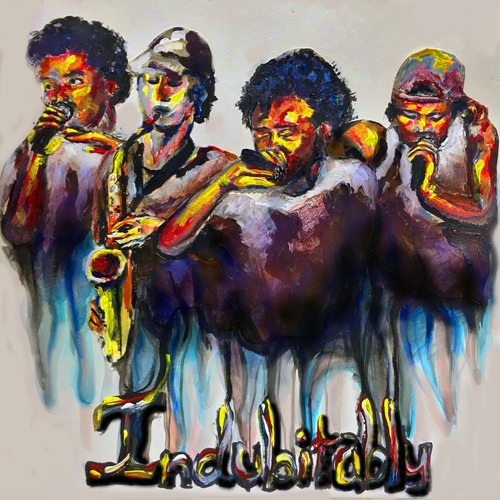
Abijah Archer ‘20, also known by his moniker “Bijah B,” is much more than just a rapper. He’s a revolutionary who believes in the power of organized protest, a musician who is interested in the intersection of poetry and resistance, an artist who unabashedly believes in art as a force for social good, an emcee who believes in the power of the people and the power of creativity.
The level of talent, quick wit and flow displayed on his five-song EP, “Indubitably,” contradicts what he tells me in a recent interview, which is that the release was just a compilation of songs he performed as a sophomore in high school that he recorded just to “get something out there.” Since then, he’s evolved immensely as an artist.
Although “Indubitably” fits neatly within the demarcated bounds of hip-hop, his recent musical experimentation blurs the lines between genres. It’s funky. It’s groovy. It’s soul sampling. It’s Minneapolis music. It can be categorized as “new age rhythm and blues” and “experimental.”
Despite the fact that Bijah B is a renaissance man whose talents span producing, recording and sampling music, and whose personal music tastes span reggae, dancehall, jazz, soul and R&B, one thing is for certain: His potency as a performer, poet and political organizer is indubitable.
The sensational way Abijah utilizes music as a far-reaching political and organizing tool is what resonates with me most after my first run through “Indubitably.” The opening song, “The Black Panther Anthem,” has overarching themes of empowerment through self-love and unapologetic politics. It opens with singer/activist Nina Simone discussing her unabashed love and expression of her blackness, overlaid with Black Panther Party co-founder Bobby Seale’s cries for a new system. Abijah then launches into the first verse: “Reparations now or it’s revolution on them loose the cannons. They wish I was a wishy-washy c**n they could fathom,” followed a couple of bars later by, “On mics I can’t be passive” and “Mr. Hoover tried to stop it, imported the toxins and knocked us up for profit.” The saxophone grooves alluringly in the background over a chorus of voices, a pleasant mix of harmonizing vocals and moving and relevant historical references to COINTELPRO and the Iran-Contra Affair.
“What’s the Move,” the next song off the EP, consists of a rhythm and sound reminiscent of organ music played at baseball games. “So far gone like I came from the six/back to the street, toothbrush on the kicks/see I’m out of hand like bad chopsticks/never blind to the white man’s tricks.” It’s a sharp contrast from the more laid-back and harmonious saxophone in the beginning of “Half Grey Skies,” which transitions into heavy-handed piano chords. Abijah cleverly references derivatives in the first verse: “Differentiate between the weak and the best/I stay the same like e to the x.” It only continues to get more mathematical: “Take one man, that’s three-fifths, plus two lives, times three hits, over two dreams in the weekend, that’s half grey skies.”
https://soundcloud.com/bijahb
“Unseen” serves as further proof of Abijah’s musical facilities. The song is upbeat – a short, simple sample on loop. It ends with a groovy sample of Smokey Robinson & The Miracles’ “Tracks Of My Tears.” It’s further proof of what I’ve learned during this interview – that Abijah listens to music the way he listens to a conversation: intensely and attentively, as if he is in a constant dialogue with what he listens to.
His music is infused with the art he interacts with. The transition from the slow and soulful Smokey Robinson song to the blues-y sounds of the keyboard and saxophone and xylophone-like sounds foreground the chorus of “Into the Core”: “Criminals in suits and ties make crips and bloods like nuns/ they don’t gotta run/this ain’t a gun, it’s a phone/sir can you leave me alone/I’m trying to get home,” Abijah raps. It’s a testament to the enduring, systemic racism of the police force, of the courts and of institutions created to deliver (in)justice.
You can listen to Bijah B and his musical collective, Unknown Creatures, on Soundcloud. You can catch Abijah performing on stages in various creative spaces in Minneapolis, DJing for the Caribbean Students Association or La Maison Rouge, performing at Black Love or rapping at the Harmony House. Give it a couple years, and maybe you’ll even see him on TV, giving his acceptance speech at the Grammys.
Contact Esther Tsvayg at etsvayg ‘at’ stanford.edu.